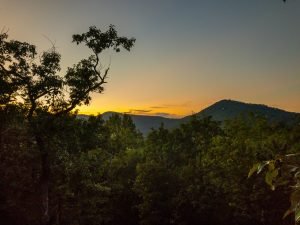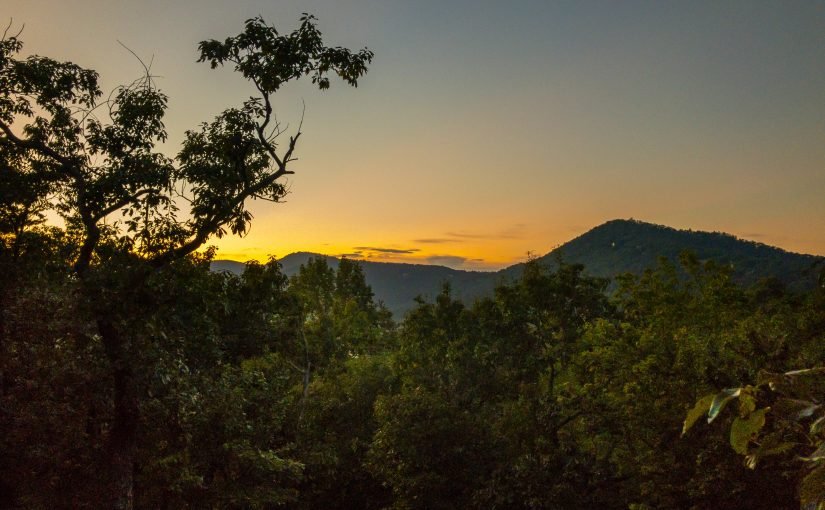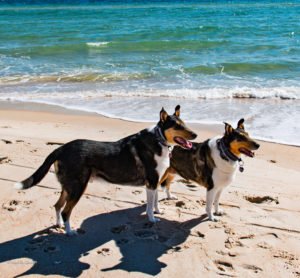Have you thought this out?

It’s Fall and so we’ve begun our traveling season. We tend not to escape from the Gulf Coast during the summer months. Yes, it can be hot and humid (although that doesn’t worry us too much) it’s more as Jimmy Buffett would say “You can’t reason with hurricane season”. The tropical wind event season isn’t over yet, but we’ve passed the peak and with forecasting the way it is these days, you seem to have a week or so warning of any tropical unpleasantness.
My chief researcher and frustrated travel agent (Beth, the First Lady) suggested that we escape to the Northern Georgia Mountains, where her family once owned a mountain lodge. The Development chosen is Big Canoe, a huge property about an hour or so north west of Atlanta. A simple seven hour drive from the coast.
We’ve rented properties before and have gone through property management companies and have also become familiar with VRBO and HomeAway. This time Beth found an ideal property through Airbnb. I’ve written about Airbnb in the past and have followed their progress over the years, but we’ve never actually used them.
The search and booking process was simple and very efficient. We were looking for somewhere that was suitable for the two of us and our two Smooth (short haired) Collies. Airbnb matched us up with a great property and the booking was made. As things happened we subsequently received an offer from American Express (who appear to work closely with Airbnb) which resulted in our extending the stay to take advantage of the offer. Yes, advertising obviously works!
As part of the booking we were put in touch with the owners, a charming couple (Cindy & Joe) who also own a bed and breakfast in Gainsville, Florida. Obviously they’re immersed in the hospitality business and their B&B (The Magnolia Plantation – http://www.magnoliabnb.com/ ) looks like its certainly worth a visit. As things transpire, they also own a Collie, so a mutual bond was established. That’s certainly something that can happen easily with the Airbnb type system, and the personal owner/guest relationship is rather more difficult with more traditional ways of renting. It does seem like a beneficial thing.
Simply put, the property is exactly as described and so far the exercise has been great.
While sitting relaxing I was reading an article in the Atlanta Journal Constitution (thanks once again to the Researcher-in-Chief) about how vacation rentals are being challenged in the North Georgia Lakes area. It’s something that appears to be happening in other parts of the USA and the world in general.
In the Georgia Lakes area, the move is being driven by Georgia Power who own most of the land around the lakes. They are invoking clauses in the leases of properties that are offered by the power company. These are usually 15 year renewable contracts, although according to the AJC, some of these properties have been in the leaseholders families for generations. Families have rented out their homes through rental companies and realtors, and later through VRBO/HomeAway and now Airbnb. The no-subletting clauses have been largely ignored in the past, but now Georgia Power has decided to change their policy. Regrettably some leaseholders who may be second home owners in the lakes or who have inherited the properties feel that the only way they can keep them is if they fund their upkeep through short-term letting.
Certainly Georgia Power have done a huge amount to keep the area pristine and very attractive. Their aims appear to be to avoid the region becoming an overcrowded tourist ‘resort’ area. That’s a very laudable policy.
The move against short term rentals, particularly of the peer-to-peer variety like Airbnb is not restricted to the Georgia Lakes. Many cities, resort areas, states and cities across the world have taken against the growing trend. The reasons appear to be many and varied and range from worries of over-tourism, through to the disappearance of affordable accommodation for locals. Cities like Barcelona and Venice have become places where locals, who service the tourist industry, simply can’t afford to live. Even if they could, property owners can get a substantial income by ‘buying to let’ and therefore the stock of property for permanent residents dries up.
In other case, the move against short-term rentals is driven by competitors in the accommodation markets – hotels, property management companies etc., who don’t like the change in the way business is done. You can’t really blame them, but then it may be a case of adapt to changing fashions or die.
Lastly there are are the folks who having moved into an area, perhaps to retire or to buy a second home, rather like the idea of being ‘the last newcomer in the village’, and wish to call an end to further arrivals.
I’m not judging all of these motives as they’re valid reasons, and I can identify with the emotions. However, there are consequences to not thinking through the whole process.
Let’s start off with the Georgia Lakes. These properties have been in the area for many years. The building of the actual houses provided work for the locals in the construction and later maintenance industries. Subsequent expansion brought in stores to service the new residents and as short term visitation – tourism – developed, so did the need for restaurants and all the business that service the transients. If the current leaseholders can’t short-term rent their properties, they may be forced to sell them. That will probably drive down the real estate prices, and with no transient visitors, the jobs that cater to them will also dry up. Tax revenue (from both income and sales tax from visitors) will reduce putting pressure on local communities to fund services, which in turn will increase local taxes and the vicious circle moves on. This is sounding more like an economics class that tourism observations!
The same sort of thought process applies to the over-tourism scenario. Tourism was attracted by the, well, ‘attractiveness’ of the destination. Rather like over-fishing which destroys the habitat and eventually the livelihood of the fisherfolk, badly managed tourism eventually destroys both the destination and the very people who rely on tourism for their jobs.
The only scenarios that I can’t reconcile are the actions of competitors who would rather legislate against changes in process (For example the taxi drivers versus Uber and Lyft in may destinations around the world) and the ‘Last foreigner in the village’ scenario. I have little sympathy for either group.
The rest? Well, it relies on compromise and sensible management from both sides. Regrettably letting the market decide, isn’t really an option. Like any good farmer will tell you, land management and animal husbandry over a long period are the policies that will result in a sustainable model for all concerned. The same is true of tourism.
Enough of this. The dogs need walking and we need to go and spend some money in local stores to stimulate the local economy. It’s a tough old life eh?








